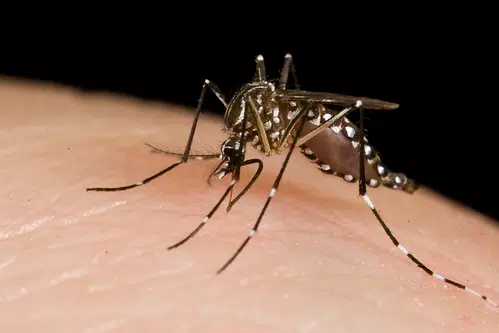West Nile Virus (WNV) has been detected in the Quinte region for the first time this year.
Mosquito traps in Brighton have tested positive for the virus which is primarily transmitted through the insects’ bites.
The Haliburton, Kawartha, Pine Ridge District Health Unit (HKPRDHU) says the mosquito was collected from one of the traps set by health officials on August 1.
HKPRDHU conducts weekly mosquito trapping and testing throughout its district area during the summer and early fall months to monitor for WNV activity.
“As we enter the peak season for West Nile Virus, it’s crucial for everyone to take preventive measures seriously,” said Anne Marie Holt, Director of Health Protection with the HKPR District Health Unit. “Protecting yourself from mosquito bites and eliminating standing water around your home are simple yet effective ways to reduce the risk of infection. Negative mosquito pools don’t guarantee that WNV is not present in the community; it only means we didn’t catch a positive mosquito pool. Therefore, it is important for the community to stay vigilant.”
Although the majority of WNV cases do not show symptoms, some infected individuals may experience mild flu-like symptoms, including fever, headache, and body aches.
Others may develop severe neuro-invasive disease, which disproportionately affects older adults.
To prevent WNV, the public is advised to:
Prevent mosquito bites: Cover up when outdoors between dusk and dawn, use insect repellent containing DEET or icaridin.
Clean up: around your property by removing thick brush, cutting down high vegetation, removing sources of standing water from your property i.e. old tires, wheelbarrows and cleaning eaves troughs to reduce mosquito habitats. Also, prevent mosquitoes from entering your home by ensuring your window screens are tight fitting and in good repair.
For additional information on protection measures against West Nile Virus, including reducing mosquito breeding sites and the safe use of insect repellents, visit hkpr.on.ca/WNV.






